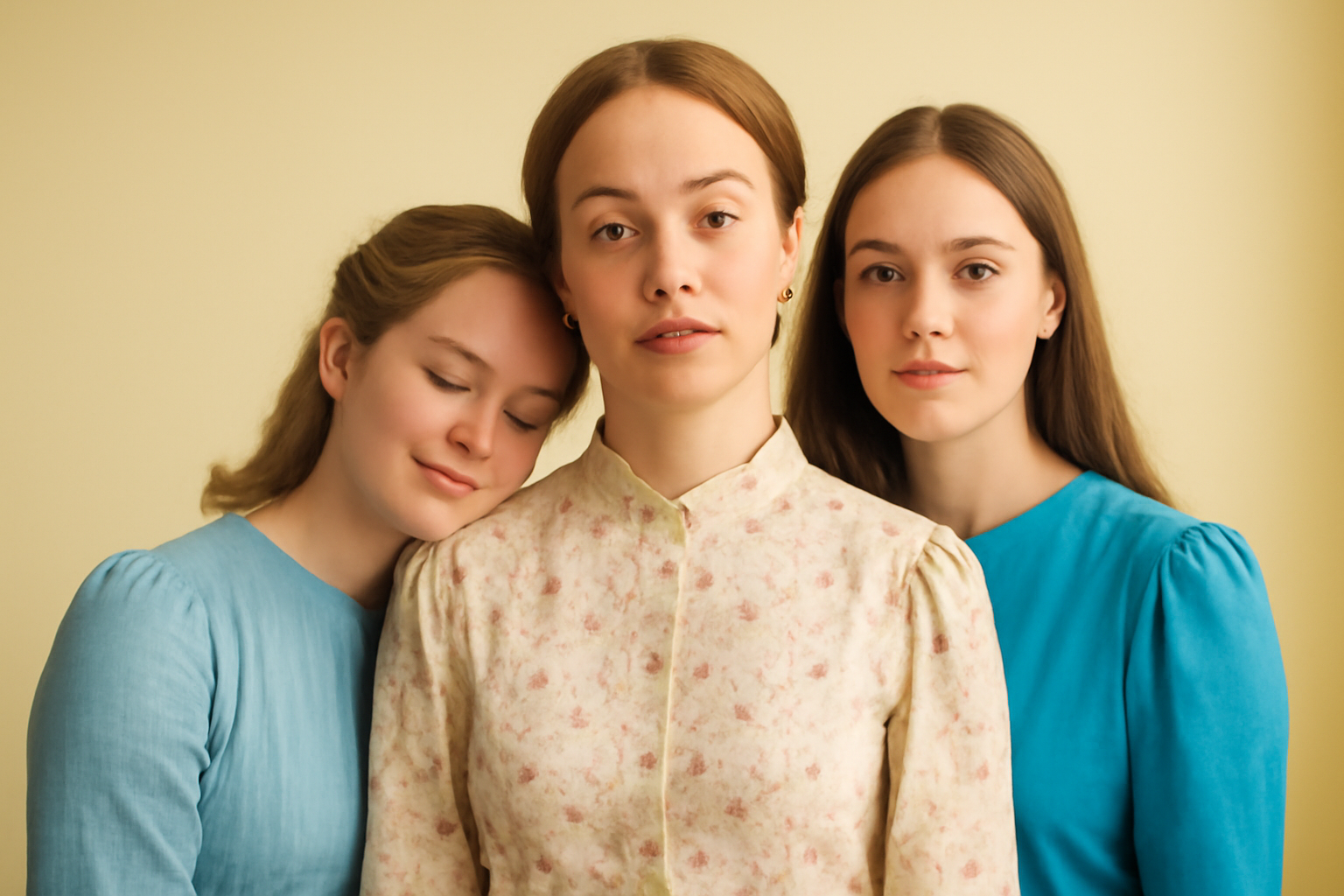
Louisa Connolly-Burnham, the multi-talented writer, director, and lead actress of the BAFTA long-listed short film Sister Wives, delves into the intricate themes of queerness within a polygamous religious sect in her latest cinematic endeavor. Speaking from her South London apartment via Zoom, Connolly-Burnham acknowledges the recent surge in media focusing on Mormon sects and related religious groups.
"There's a fascination with Mormon communities happening right now," she observes. With notable productions like Disney+'s upcoming series The Secret Lives of Mormon Wives and Netflix's Keep Sweet: Pray and Obey, it's clear that audiences are intrigued by these insular communities.
Sister Wives specifically examines life within the Fundamentalist Church of Jesus Christ of Latter-Day Saints (FLDS), a sect known for its continued practice of polygamy. In the film, Connolly-Burnham plays Kaidence, a disillusioned young woman married to Jeremiah (portrayed by Michael Fox) without any real emotional connection. When Jeremiah announces, "We are to become three," a younger woman named Galilee, played by Mia McKenna-Bruce, is introduced into their marriage.
As Jeremiah embarks on a religious mission to Nevada, Kaidence and Galilee are left alone, navigating their new dynamics. Through simple interactions, such as brushing each other's hair or sharing meals, the two women develop a deep and unexpected connection, discovering affection and love in each other's company.
Connolly-Burnham questions the occurrence of queerness within the FLDS. "It's hard to prove or know," she admits, "because few stories have emerged from these communities." Despite the sect's strict anti-LGBTQ+ stance, the filmmaker speculates about hidden lesbian relationships, driven by the loneliness and competition among the women.
"I wrote Sister Wives because I imagine that, in such a setting, some women might turn to each other for support and love," she explains. "With so many 'sister wives', it's impossible for each to feel equally cherished by their husband."
Connolly-Burnham, at just 32, has had a robust career in the entertainment industry, with roles in popular series like Wolfblood and Vampire Academy. However, Sister Wives stands out, having already won multiple awards at the LGBTQ+ Iris Prize and now contending for BAFTA, Oscars, and BIFA recognition. A full-length feature film version is in the works, set to film this summer.
This film marks Connolly-Burnham's first venture into queer cinema. "The LGBTQIA+ audience is incredibly engaged," she says. "When they appreciate your work, their support is unwavering." Sister Wives not only tells a queer story but also explores themes of female solidarity, power dynamics, and autonomy within oppressive systems.
"Initially, Sister Wives felt almost dystopian," reflects Connolly-Burnham, "but given the current social and political climate, it no longer seems far-fetched."
A poignant scene in the film depicts the harsh realities of Galilee's marriage to Jeremiah, contrasted with the tender and consensual intimacy shared between Kaidence and Galilee. These moments highlight the powerful distinction between imposed and chosen relationships.
"Filming intimate scenes is always challenging," she admits, "but having a longstanding friendship with McKenna-Bruce provided comfort and trust. We choreographed everything carefully, despite time constraints."
As Sister Wives gains momentum, with potential major accolades on the horizon, Connolly-Burnham remains steadfast in her creative vision. "Art will always provoke discussion," she asserts. "If this film sparks conversation, then I've succeeded. I aim to create beautiful characters and connections, regardless of differing opinions."
In the meantime, Connolly-Burnham looks ahead with optimism. "The journey of these characters is just beginning," she says, smiling. With Sister Wives now available for streaming, its exploration of queerness within a polygamous religious context is set to reach an even broader audience.
Tags
Film, LGBTQ+, Queer Cinema, Polygamy, Religion
Related Posts
Former Anti-LGBTQ+ Activist Anita Bryant Passes Away at 84
Remembering a controversial figure: Anita Bryant's legacy Anita Bryant, once a celebrated singer and a vocal opponent against LGBTQ+ rights, passed away on December 16th at 84 in Edmond, Oklahoma, after a battle with cancer. Her life was a tapestry woven with music, controversy, and a fierce disposition on LGBTQ+ issues that often overshadowed her earlier musical accomplishments. From music star [...]
Beyoncé Concert Venue Issues Apology to Visually Impaired Fan After Disheartening VIP Experience
Picture this: you've got a golden ticket—a VIP pass—to see Beyoncé at Tottenham Hotspur Stadium in London. Sounds like a dream, right? Well, that's what Esther Obigbesan thought too. But things took an unexpected turn when her visual aid, a cane, led her down a path she never anticipated. This experience has sparked an important conversation about accessibility and inclusivity at big events. [...]
Calls for Ofcom Action Against TalkTV's Anti-Trans Broadcasts Grow
Public outcry over TalkTV's alleged misinformation It seems folks are fed up. Over 21,000 people have banded together in a petition urging Ofom, UK's media regulator, demanding they take action against TalkTV. The accusation? Allegedly spreading "far-right misinformation" and "anti-trans narratives." This collective effort highlights growing unease over how sensitive topics are portrayed by this [...]